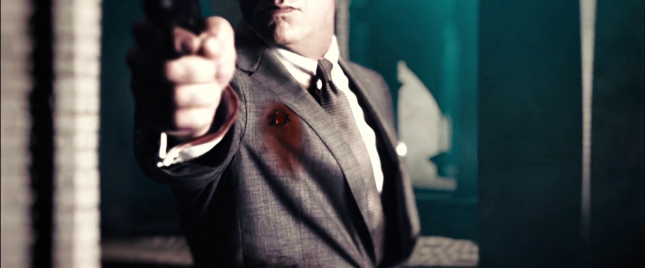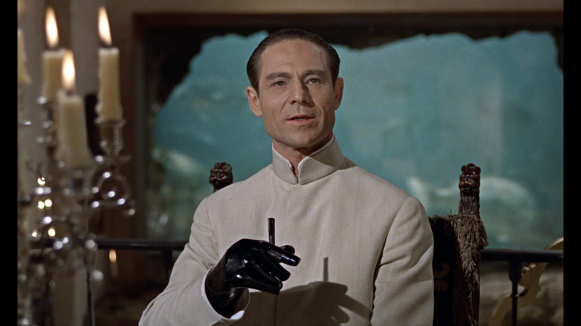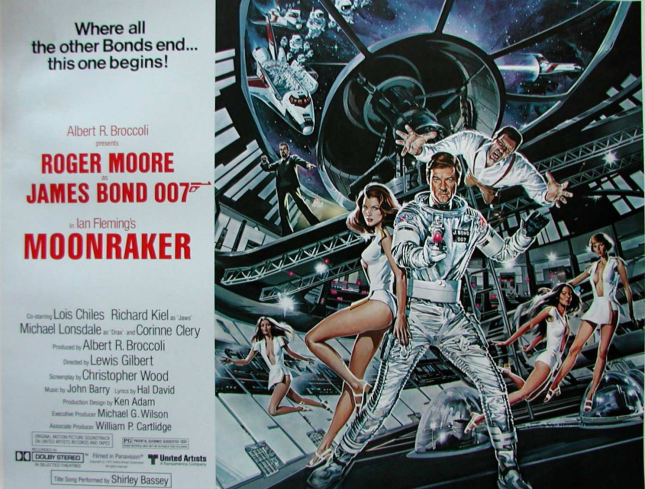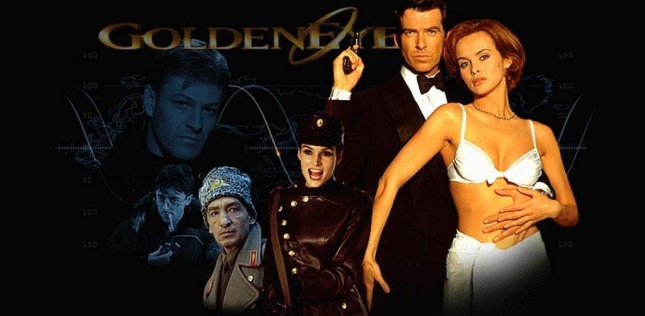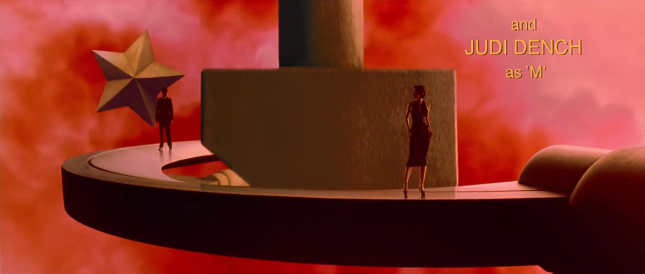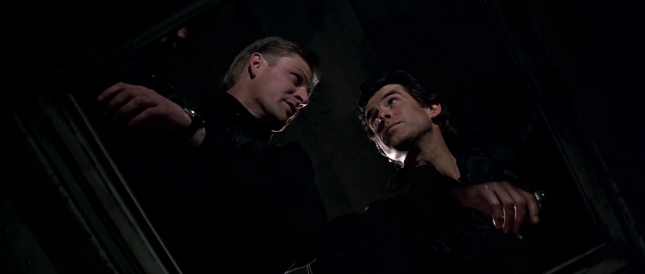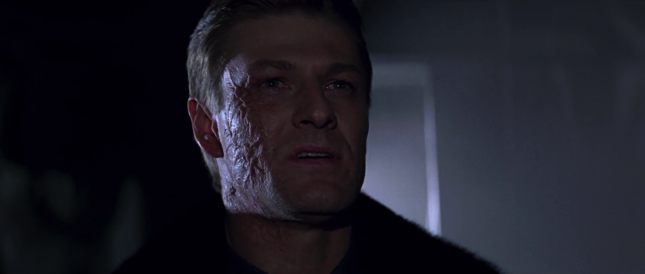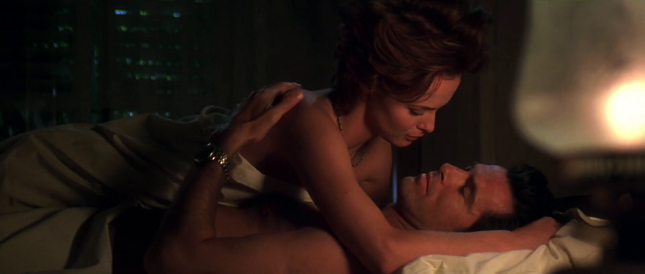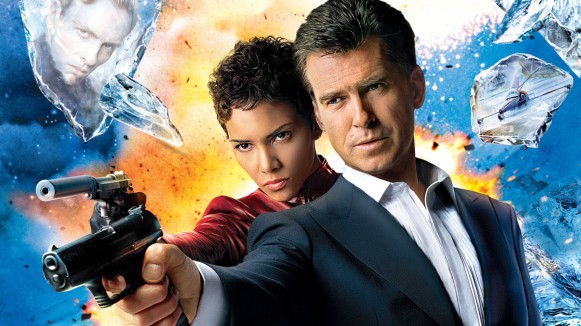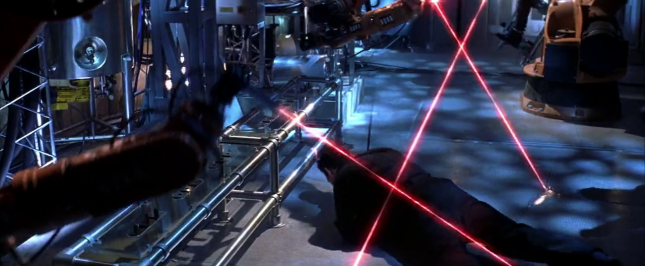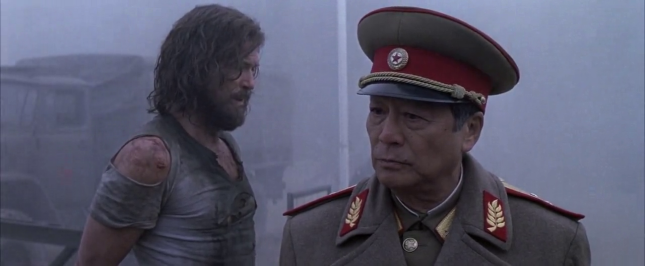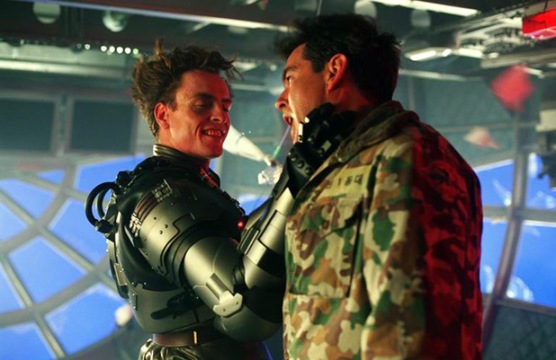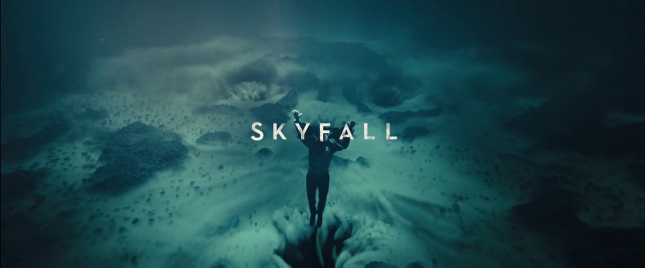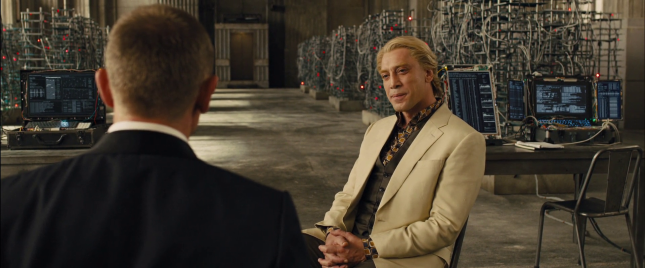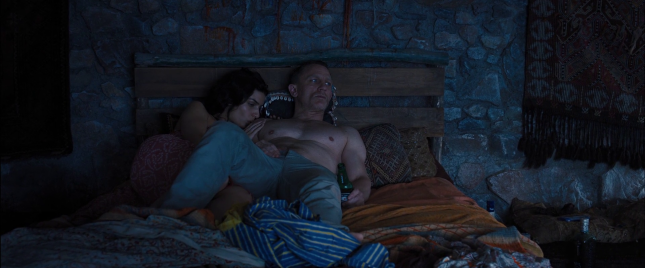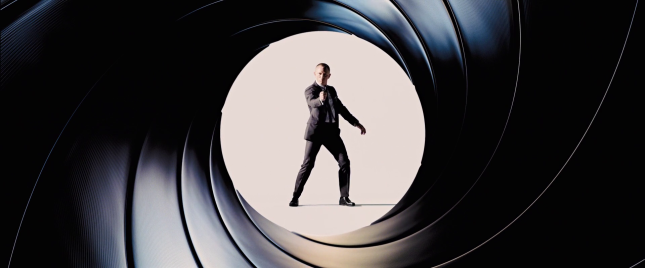With 23 canon films under it’s belt, the James Bond franchise is a media juggernaut. It’s so popular that it’s imitators (Austin Powers, Mission: Impossible) are iconic themselves. Despite this, there’s an underlying reality that even the franchise’s producers can’t ignore: James Bond is fucking old. No matter how many reinventions, the character will continue to be a relic of a bygone era.
Author Ian Fleming, a British intelligence officer himself, created Bond in 1953 as an Imperialist fantasy. Ironically, Britain was steadily losing it’s imperial power as the series continued due to mass decolonization and political failures such as the Suez Crisis. Journalist William Cook noted in the British magazine New Statesman that “Bond pandered to Britain’s inflated and increasingly insecure self-image, flattering us with the fantasy that Britannia could still punch above her weight“. This insecurity took the form of an Anglo-Saxon ubermensch who always got the girl, got the villain, and got his wine identifications correct. To further emphasize Imperialist authority, most of his villains were effete and/or foreign.
Dr. No (1962)
The film series went in the same direction, but drifted toward political correctness as the times changed. Despite this, the writing was on the wall since the end of the 60’s: Bond was becoming a joke. Films like 1973’s Live And Let Die and 1979’s Moonraker, pandering to Blaxpoitation and Sci-Fi respectively, revealed a franchise struggling to keep up with popular trends.
Audiences’ suspension of disbelief was waning; Bond didn’t seem relevant. When yet another Bond (Pierce Brosnan) was cast in 1995’s GoldenEye, the only act left to do was self-examination.
GoldenEye took the first big step in the franchise’s reflection on itself. In-story, Bond was repeatedly cited as historically obscure. The topic is broached again in 2002’s Die Another Day and 2012’s Skyfall. Let’s take a look at how each film handles this idea.
Out of the three films, GoldenEye is the most rooted in history. The first scene showcases Bond infiltrating a Soviet base in 1988, a year before the fall of the Berlin Wall. The timing of the mission links it with the twilight of the Cold War, and thus the twilight of Bond’s golden years. The new ‘M’ (Judi Dench) directly asserts that Bond is “a sexist, misogynist dinosaur. A relic of the Cold War”. She goes on to note that she’d be fine sending him to die in the field, which is a recurring element of these three films. This is a pretty dark way to start the beginning of Brosnan’s tenor, but I would suspect it’s an attempt to lampshade how dated the character is. For the most part, GoldenEye is a very straightforward Bond film (gadgets, women, cars, etc). Bond’s emasculation serves to engender him to a modern audience who aren’t as accepting of the patriarchal tone of the series. Hence why the film’s other two women challenge him as well: orgasmic assassin Xenia Onatopp (Famke Janssen) challenges him physically, whereas the computer expert/love interest challenges him emotionally by questioning Bond’s moral grayness.
The ultimate challenge to Bond’s identity is his own reflection: Agent 006 Alec Trevelyan (Sean Bean). In the 1988 mission, Alec was Bond’s partner until he was “captured”. In actuality, Alec’s decade long gambit was to get revenge on Britain for the betrayal of his parents.
Turns out that Alec’s parents were not British at all but Russian, specifically World War 2 Soviet POWs who were sent back to Russia as part of an international treaty. This real-life act sent many to their death (or worse) at the hands of the Communists, which the British were aware of. Bond aptly remarks “not our finest moment“. Alec’s background sheds light on the grim reality of the war Bond’s been fighting for years: there are no real heroes and villains. Alec is as much a “heroic Brit” as he is a “dirty commie”. The distinctions of the Cold War are shown to be as much of a fantasy as Bond is.
Despite it’s initial deconstruction, GoldenEye is ultimately a straightforward Bond film. Alec is still a standard villain, the love interest still falls for our hero, and Bond still saves the day without consequence. Questions of Bond’s relevance evaporate once he impales a man with a satellite dish.
If GoldenEye is the quarter-life crisis of Bond – a moody and inconclusive period of reflection – Die Another Day is his acid-dropping, motorcycle-riding, hooker-boning mid-life crisis. The film’s title scene sums up the tone perfectly: after being arrested for killing a North Korean general’s son, Bond is subject to various tortures (including hallucinogenic venom) demonstrated through an acid trip sequence combining his imagination and reality. Likewise, this film attempts to recreate the camp of Bond’s heyday, but ends up losing it’s grip on reality in the process. Remember that scene in Goldfinger (1964) where Bond is threatened by one laser?
Most of the film’s tone is due to the fact that it marked the 40th anniversary of the series. This made creators feel they had to shallowly reference EVERY Bond trope imaginable. The premise itself has several references: after Bond is liberated from North Korea, he finds that an evil diamond-based organization (Diamonds Are Forever) is attempting to build a solar weapon of mass destruction (The Man With The Golden Gun). Bond then has to team up with an attractive female agent (The Spy Who Loved Me, License To Kill, Tomorrow Never Dies) to take down their eccentric billionaire leader (pretty much every film).
Many fans consider this film the ‘shark-jumping’ moment of Brosnan’s run and possibly the franchise as a whole (and not just because it had Madonna in a cameo). The series had reached the point of self-parody. Stunts such as an obviously CG’d Bond surfing on tidal wave with a makeshift sail suggested Bond was trying to prove he’s still ‘hip’.
Despite it’s silliness, the film still has historical roots.
As with GoldenEye, we have a return to Cold War elements, but with a more black and white conflict. The villain’s father, General Moon, actually desires to create a bridge between North Korea and the West. He regards his son’s – Colonel Moon’s – warmongering as disgusting. Colonel Moon’s admiration for Communist North Korean ideals is portrayed as an affectation rather than a legitimate political stance: in one scene he criticizes Western capitalism only to have Bond note his visible legion of luxury cars. Despite his claims, Colonel Moon is a mercenary more interested in impressing his father than anything else; allowing for him to be an acceptable target for Bond.
Die Another Day once again has Bond face ‘himself’, albeit a version that is more pretender than worthy opponent. In order to gain support in Britain, Colonel Moon has a geneticist create a Caucasian visage for him. His new identity is a mockery of the 007: he’s disgustingly smug, unfailingly confident, and shallowly patriotic. His introduction succinctly establishes the character:
Moon/Graves ‘mixed’ cultural identity is similar to Alec Trevelyan, but Moon/Graves has significantly less historical justification for his actions. Colonel Moon’s North Korean patriotism is as shallow as his other identity’s British patriotism. He never considers that using the solar cannon to start a conflict with the West could embroil North Korea in a World War that they might not survive. When his legitimately patriotic father points this out, he proves his ‘nationalism’ by killing him. Moon justifies Bond’s relevancy by being a distorted cultural remnant of the Cold War; a rabid dog that has to be put down by good ol’ Britannia. Accordingly, the film is otherwise another standard romp where Bond gets his usual rewards.
Even though Die Another Day and GoldenEye both focus on the ‘end’ of Bond, Skyfall serves the most as a send-off. The title theme begins with a lifeless Bond sinking into the depths with Adele assuring us that “this is the end“. Unsurprisingly, this was not true. Just as Die Another Day marked the 40th anniversary with Bond’s death and rebirth, Skyfall marked the 50th anniversary with resurrection. Overall, Craig’s entire tenor is meant to be the rebirth of Bond. The death of the previous Bond isn’t so much commemorated as it’s mocked with gusto: in 2006’s Casino Royale, Bond responds to a request for his martini to be shaken with “who bloody cares?“ The series went out of it’s way to not look back on the camp of it’s predecessors. With such an acidic attitude towards the Bond of yesteryear, it’s only fitting that the in-universe decline of Craig’s Bond is the most bittersweet.
The premise: after suffering friendly fire during a mission and being thought dead, Bond returns home to thwart a government hacking scheme orchestrated by a disowned agent. Unlike in Die Another Day, Bond’s return is more akin to a rising zombie than a rising phoenix. He’s physically diminished and his superiors believe he would have been better off dead. He and M’s failure to succeed in his aforementioned mission ends up putting both of their relevance into question. Ironically, M, the woman who asserted the end of Cold War-era spy tactics is now their greatest champion. While detractors of the ‘old guard’ claim the world of secret intelligence is more transparent due to the information age, she believes that the world is more opaque than ever.
This opaqueness is represented by hacker antagonist Raoul Silva (Javier Bardem). As with Trevelyan and Moon/Graves, Silva is an enemy from within. Like Bond, he was a top agent allowed to die by M. After undergoing torture by enemy agents, he becomes convinced of MI-6’s (and Britain’s) triviality. His response is to destroy M and everything she represents. This film is as much about M as it is about Bond. Q’s allusion to an “old warship being hauled off for scrap“ pertains to both of them being considered obsolete “relics of the Cold War“. As before, the film asserts that the two won’t go down without a fight. While explaining the relevance of MI-6 to a committee, M quotes Lord Tennyson’s poem Ulysses:
Though much is taken, much abides; and though
We are not now that strength which in old days
Moved earth and heaven; that which we are, we are;
One equal temper of heroic hearts,
Made weak by time and fate, but strong in will
To strive, to seek, to find, and not to yield
If you’re not aware, Ulysses is the Roman name of Odysseus: the protagonist of Homer’s Odyssey. The Greek tale chronicles his quest to sail home after the Trojan War. Several threats claim his crew and vessel. Stranded, he falls in with the goddess Calypso who offers him an island paradise, but Zeus declares he must return to his kingdom. This sounds familiar…
Parallel to Odysseus, Bond inevitably is compelled by the Nation (by virtue of his unbridled patriotism) to return home, despite being in his own personal paradise on a notably undisclosed island. M also parallels Odysseus as a “soldier-turned-king” of MI6. Tennyson’s Ulysses examines how the titular hero felt after regaining his throne. M’s quote expresses that Odysseus was “not now that strength which in old days moved earth and heaven”, just as Bond, in-universe and in franchise, lacks the power he once had. But she continues; “that which we are, we are”. Despite losing some of his resonance, Bond hasn’t lost his cultural identity. And more importantly he, M, and Britain are still “strong in will to strive, to seek, to find, and not to yield”. Skyfall marks the end of M’s reign, but not her spirit. Her replacement is shown to realize the merits of her and Bond’s tactics, thus allowing for their ideals to continue. Our film ends not with grief over what was lost, but an assurance that Bond and MI6 will continue to serve.
Tennyson’s poem postulates a Ulysses who, despite barely surviving the Trojan War, still has a warrior’s spirit for challenge. Likewise, despite outlasting the Cold War which defined it, the Bond franchise still has potential. It’s possible that the reason these three films couldn’t help reasserting Bond is because Bond should be reasserted. Looking past unsavory cultural attitudes, Bond represents patriotism, public service, determination, bravery, among many other virtues. Each film showcases that he acts for a good greater than politics. He’s not just a fictional character, he’s an international hero. While the trappings might change, Bond will always be a cultural standby. This is as true for the franchise as it is for Britain (and other major nations for that matter). The mercurial nature of politics makes tradition all the more important, even when it requires modification. Just as Bond continues to survive and adapt, so will all of us who grew up with the character.
For other posts on film franchises:
The Matrix: Reflections on Neo and Morpheus
